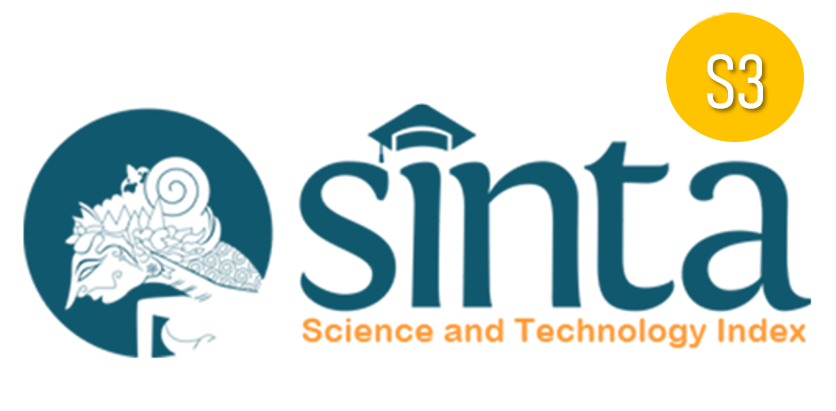Greening the Internet of Things: A Comprehensive Review of Sustainable IoT Solutions from An Educational Perspective
Abstract
Green IoT, or the use of Internet of Things (IoT) technologies to promote sustainability and reduce environmental impact, has gained increasing attention in recent years. The purpose of this paper is to increase awareness about the environmental effect of IoT and to share insights and ideas for making IoT more sustainable and contributing to a more environmentally friendly future. The paper discusses the benefits and challenges of using solar, wind, and other renewable energy sources in IoT applications, as well as the use of sensors, data analytics, and machine learning to optimize resource usage and monitor environmental conditions. The key findings of this paper indicate that Green IoT has the potential to play a significant role in addressing environmental challenges, such as climate change and resource depletion. However, there are still many challenges that need to be addressed, including the high cost of renewable energy sources and the complexity of managing large -scale IoT networks. Overall, this paper emphasizes the importance of Green IoT and the need for further research to develop more efficient and sustainable IoT solutions.
Keywords
Full Text:
PDFReferences
Alsharif, M. H., Jahid, A., Kelechi, A. H., and Kannadasan, R. (2023). Green IoT: A review and future research directions. Symmetry, 15(3), 757.
Azizi, S., Shojafar, M., Abawajy, J., and Buyya, R. (2022). Deadline-aware and energy-efficient IoT task scheduling in fog computing systems: A semi-greedy approach. Journal of Network and Computer Applications, 201, 1-5.
Benhamaid, S., Bouabdallah, A., and Lakhlef, H. (2022). Recent advances in energy management for Green-IoT: An up-to-date and comprehensive survey. Journal of Network and Computer Applications, 198, 1-5.
Bhushan, B., Kumar, A., Agarwal, A. K., Kumar, A., Bhattacharya, P., and Kumar, A. (2023). Towards a secure and sustainable internet of medical things (IoMT). Requirements, design challenges, security techniques, and future trends. Sustainability, 15(7), 1-25.
Chong, J. L., Chew, K. W., Peter, A. P., Ting, H. Y., and Show, P. L. (2023). Internet of things (IoT)-based environmental monitoring and control system for home-based mushroom cultivation. Biosensors, 13(1), 1-98.
Dian, F. J., Vahidnia, R., and Rahmati, A. (2020). Wearables and the Internet of Things (IoT), applications, opportunities, and challenges: A survey. Institute of Electrical and Electronics Engineers, 8, 69200-69211.
Jayaraman, P. P., Yang, X., Yavari, A., Georgakopoulos, D., and Yi, X. (2017). Privacy preserving Internet of Things: From privacy techniques to a blueprint architecture and efficient implementation. Future Generation Computer Systems, 76, 540-549.
Madushanki, A. R., Halgamuge, M. N., Wirasagoda, W. S., and Syed, A. (2019). Adoption of the Internet of Things (IoT) in agriculture and smart farming towards urban greening: A review. International Journal of Advanced Computer Science and Applications, 10(4), 11-28.
Malik, M., Dutta, M., and Granjal, J. (2023). L-ECQV: Lightweight ECQV implicit certificates for authentication in the internet of things. Institute of Electrical and Electronics Engineers, 11, 35517-35540.
Malina, L., Hajny, J., Fujdiak, R., and Hosek, J. (2016). On perspective of security and privacy-preserving solutions in the internet of things. Computer Networks, 102, 83-95.
Manzoni, P., Li, R., Zennaro, M., and Figueria, S. (2022). Guest editorial special issue on sustainable solutions for the internet of things. Institute of Electrical and Electronics Engineers Internet of Things Journal, 9(10), 7091-7094.
Memić, B., Džubur, A. H., and Avdagić-Golub, E. (2022). Green IoT: sustainability environment and technologies. Science, Engineering and Technology, 2(1), 24-29.
Ray, P. P. (2017). Internet of things for smart agriculture: Technologies, practices and future direction. Journal of Ambient Intelligence and Smart Environments, 9(4), 395-420.
Sastry, R. V. L. S. N., Kapila, D., Jaiswal, S., Sargunam, S., Akram, S. V., and Kumar, K. S. (2022). Critically analysing the concept of deep learning and how it impacts organizational performance. International Conference on Advance Computing and Innovative Technologies in Engineering (ICACITE), 22, 321-324.
Shafique, K., Khawaja, B. A., Sabir, F., Qazi, S., and Mustaqim, M. (2020). Internet of things (IoT) for next-generation smart systems: A review of current challenges, future trends and prospects for emerging 5G-IoT scenarios. Institute of Electrical and Electronics Engineers, 8, 23022-23040.
Sisinni, E., Saifullah, A., Han, S., Jennehag, U., and Gidlund, M. (2018). Industrial internet of things: Challenges, opportunities, and directions. Institute of Electrical and Electronics Engineers Transactions on Industrial Informatics, 14(11), 4724-4734.
Swaraj, C. M., and Sowmyashree, K. M. (2020). IOT based smart agriculture monitoring and irrigation system. International Journal of Engineering Research and Technology (IJERT), 8(14), 245-249.
Syafrudin, M., Alfian, G., Fitriyani, N. L., and Rhee, J. (2018). Performance analysis of IoT-based sensor, big data processing, and machine learning model for real-time monitoring system in automotive manufacturing. Sensors, 18(9), 2946.
Tang, S., Shelden, D. R., Eastman, C. M., Pishdad-Bozorgi, P., and Gao, X. (2019). A review of building information modeling (BIM) and the internet of things (IoT) devices integration: Present status and future trends. Automation in Construction, 101, 127-139.
Tatas, K., Al-Zoubi, A., Christofides, N., Zannettis, C., Chrysostomou, M., Panteli, S., and Antoniou, A. (2022). Reliable IoT-based monitoring and control of hydroponic systems. Technologies, 10(1), 1-26.
DOI: https://doi.org/10.17509/ijert.v3i3.57428
Refbacks
- There are currently no refbacks.
Copyright (c) 2023 Universitas Pendidikan Indonesia (UPI)

This work is licensed under a Creative Commons Attribution-ShareAlike 4.0 International License.







.png)




